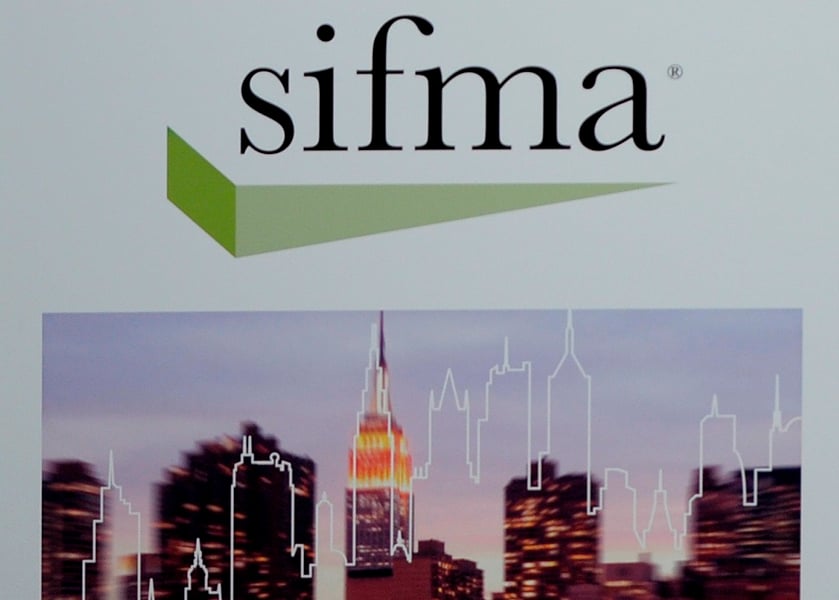The major trade organization for the financial services sector proposed Wednesday its own version of strengthened investment-advice rules for brokers, outlining a standard it says is more workable than one floated earlier this spring by the Department of Labor.
In essence, the Securities Industry and Financial Markets Association suggests amending suitability rules enforced by the Financial Industry Regulatory Authority Inc. to include a
“legal and enforceable best interests obligation” and requirements to consider investment fees, avoid and manage material conflicts of interest, and provide disclosures about fees and conflicts.
Their version differs meaningfully in scope with
the DOL proposal designed to reduce conflicts of interest for brokers working with retirement accounts. The DOL proposal establishes a best-interest contract exemption, which gives brokers flexibility in their compensation arrangement as long as they sign a legally binding contract that requires them to act in their client's best interest.
Introduced in April with White House backing, the DOL says its rule would curb incentives for brokers to put their clients in high-fee products that erode retirement savings.
SIFMA contends the DOL rule would significantly increase broker liability risk and regulatory costs and force brokers to move clients from commission-based brokerage accounts to fee-based accounts, potentially pricing investors with modest assets out of the advice market. It also says in its proposal that if the DOL finalizes a rule that applies only to 401(k) and retirement accounts, it would “add to investor confusion and result in regulatory duplication and inefficiency.”
SIFMA is not opposed to raising the bar for brokers, the organization's president and chief executive Kenneth E. Bentsen Jr. stressed at a SIFMA event in New York. But it is concerned about the potential damage of a flawed rule.
“This is not about being for or against the best-interest standard,” Mr. Bentsen said. “The industry's support of such a standard is quite documented. Rather, it is how you do it, and it's there where we have an issue and where we find the current [DOL] proposal unworkable.”
A DOL spokesman did not immediately responds to a request for comment.
Barbara Roper, director of investor protection at the Consumer Federation of America, said SIFMA's proposal focuses too much on disclosure and consent to conflicts instead of targeting financial incentives that create broker conflicts.
“It is weak and vague precisely where DOL is strong: in providing meaningful restrictions on the practices firms use to encourage advisers to behave in ways that are inconsistent with their customers' best interest,” Ms. Roper wrote in an email. “It would have to be considerably strengthened to provide the same protections DOL is seeking to establish under its proposed rule.”
Last week, Finra chairman and chief executive Richard Ketchum
called for a best-interest standard that is similar to the one SIFMA announced Wednesday. A Finra spokesman declined to comment on the SIFMA proposal.
Mr. Bentsen said it was important for the SEC to take the lead in establishing a fiduciary standard that would apply across all securities products. He said SIFMA's idea could serve as a benchmark.
But its requirements are much less stringent than the fiduciary standard now required of investment advisers.
Recently, SEC Chairman Mary Jo White endorsed a fiduciary rule but said it's not clear whether the SEC will propose one.







